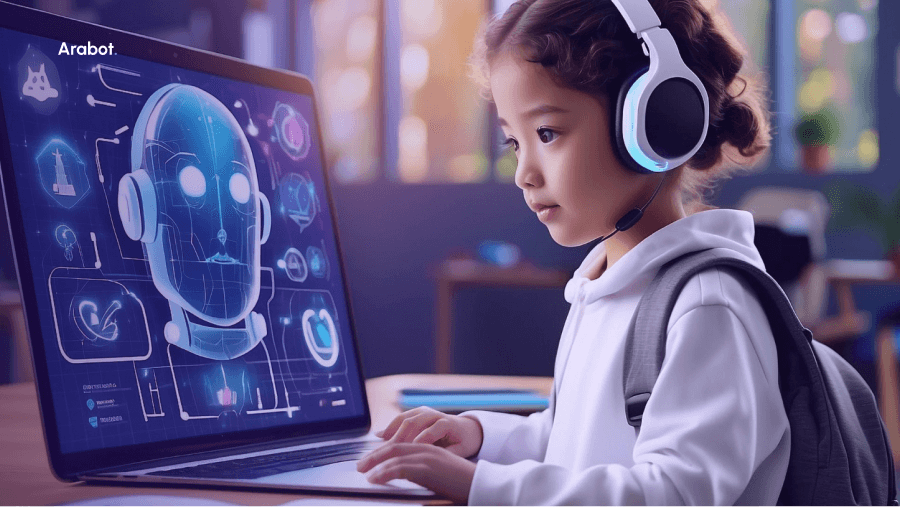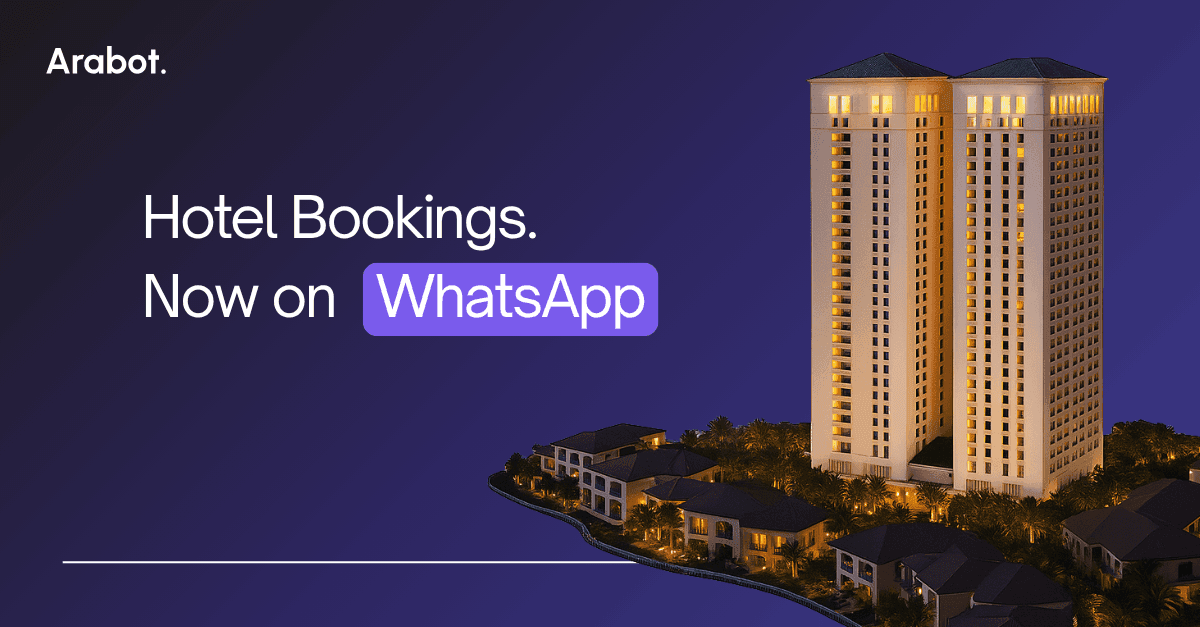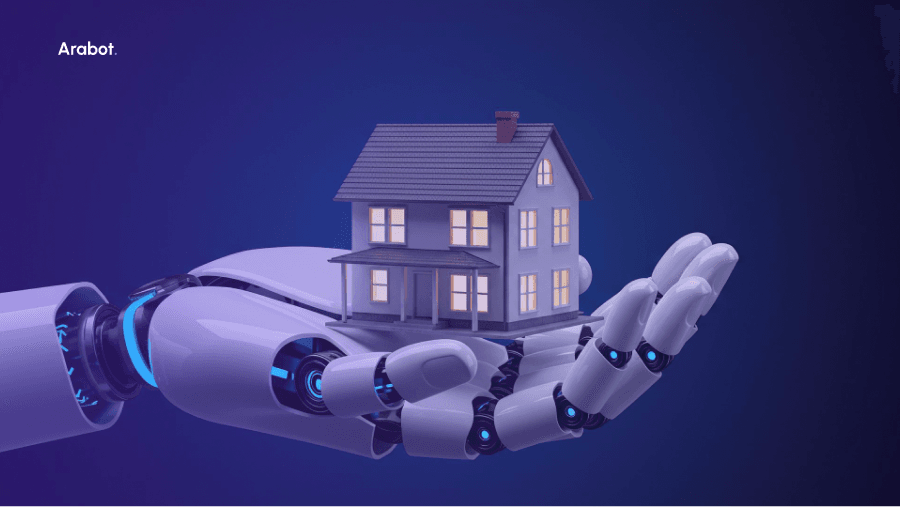Education
How to Use a Conversational AI Virtual Assistant in Education

Classrooms are no longer static. Today's students, fluent in the language of technology, demand a dynamic and interactive learning experience. This rapidly evolving landscape necessitates innovative solutions that cater to their diverse learning styles and preferences.
The education sector is actively welcoming the transformative power of technology to enhance the learning journey. From interactive whiteboards to online platforms, educational institutions are incorporating a range of digital tools. However, one technology stands out for its potential to personalize learning and ignite student engagement: chatbots powered by artificial intelligence (AI).
Chatbots are conversational AI tools that simulate human interaction through text or voice commands. In the context of education, these AI-powered virtual assistants hold immense potential to revolutionize how students learn by providing:
- Uninterrupted Accessibility and Support: Unlike human teachers, chatbots function as tireless assistants, available 24/7 to answer student questions, clarify concepts, and offer immediate guidance.
- Personalized Learning Paths: Chatbots can adapt to individual learning styles and pace. They recommend relevant resources, suggest tailored practice exercises, and provide personalized feedback, essentially creating a customized learning journey for each student.
- Interactive and Engaging Exploration: Chatbots can incorporate gamification elements, quizzes, and interactive activities to make learning fun and stimulating, fostering a more engaging learning environment.
These are just a few ways that chatbots are poised to transform the education sector. In the following sections, we will go deeper into the specific benefits of chatbots in education, explore a real-world example of their successful implementation, and discuss the exciting future possibilities of this technology.
The Benefits of Chatbots in Education:
Chatbots powered by artificial intelligence (AI) are emerging as powerful tools at the forefront of this change. These virtual assistants offer a unique blend of accessibility, personalization, and interactivity, fostering a transformed learning landscape. Here are the key benefits of chatbots in education:
Skills Sandbox for Personalized Development:
Traditional learning often struggles to cater to individual needs. Chatbots, however, can create a personalized "Skills Sandbox" environment (as described by Stanford). This allows students to practice soft skills like leading discussions or guiding conferences in a simulated environment with a chatbot. Here's how it empowers both students and instructors:
- Students: Practice communication, leadership, and teaching skills in a safe, low-stakes environment with a chatbot acting as a simulated participant. They can experiment with different approaches, receive immediate feedback, and refine their skills without real-world pressure.
- Instructors: Free up valuable classroom time by enabling students to hone their soft skills independently. Chatbot conversations can be recorded and reviewed, allowing instructors to identify common areas of difficulty and tailor their teaching approach accordingly.
Streamlined Course Information Delivery:
Stanford's Online Classroom Voices emphasizes the burden instructors face addressing frequent student inquiries about deadlines, assignments, or resources. Chatbots can act as the first line of defense, creating a more efficient learning environment:
- Students: Gain 24/7 access to crucial course information like deadlines, assignments, and resource links. This eliminates the need to wait for instructor availability or sift through complex course materials, allowing them to focus on learning.
- Instructors: Spend less time fielding repetitive questions, freeing up valuable time for more in-depth discussions and personalized interactions with students.
Engaging Memorization and Practice Tools:
Rote memorization can be tedious, but chatbots can transform it into an engaging activity. Stanford highlights the potential for chatbots as interactive flashcards:
- Students: Practice memorizing key terms and concepts through repetition and interactive drills with the chatbot. Chatbots can adapt the difficulty level and provide explanations, making the process more effective and engaging.
- Instructors: Create a dynamic and interactive learning tool that caters to different learning styles. Chatbots can personalize practice sessions and track student progress, allowing instructors to identify areas requiring additional support.
Fostering a Culture of Anonymous Feedback:
Honest feedback is crucial for learning improvement, but students might hesitate to express concerns in a traditional classroom setting. Stanford highlights the value of chatbots for anonymous feedback:
- Students: Provide feedback on the course content, delivery, or pace in a safe and anonymous environment. This allows instructors to gain valuable insights into student perspectives and improve the overall learning experience.
- Instructors: Gather anonymous feedback regularly to identify areas for improvement and tailor their teaching strategies to better meet student needs. This fosters a more collaborative learning environment where students feel comfortable providing constructive feedback.
These are just a few examples of how chatbots can change education. By offering personalized learning experiences, readily accessible resources, and opportunities for self-directed practice, chatbots hold immense potential to shape a more engaging and effective learning landscape for both students and instructors.
A Real-World Example: arabot at Batterjee Medical College
Batterjee Medical College (BMC): A Center for Excellence
Located in Jeddah, Saudi Arabia, Batterjee Medical College (BMC) is a leading private institution renowned for its commitment to high-quality medical education. BMC offers a variety of bachelor's degree programs in healthcare, attracting students from across the region. However, managing the influx of student inquiries regarding programs, admissions, and other college information can be a significant challenge.
arabot: A Solution for Streamlined Communication
To address this challenge and enhance the overall student experience, BMC partnered with Arabot, a leading provider of AI-powered chatbot solutions. Arabot's chatbot seamlessly integrated into BMC's system, offering several key benefits:
- 24/7 Availability: Unlike human staff, the Arabot chatbot is available around the clock to answer student inquiries promptly, regardless of time zone or day of the week. This ensures that prospective students receive the information they need, whenever they need it.
- Instant Information Access: The chatbot acts as a comprehensive knowledge base, providing students with immediate access to frequently asked questions (FAQs) about BMC's programs, admissions process, student life, and other relevant information. This eliminates the need for students to wait for email responses or search through complex websites.
Positive Outcomes for BMC
BMC's implementation of the arabot chatbot solution has yielded positive results:
- Increased Lead Generation: The chatbot's ability to engage with prospective students 24/7 has significantly increased the number of qualified leads for BMC. This allows the admissions team to focus on nurturing high-potential candidates.
- Improved Communication and Efficiency: The chatbot streamlines communication by efficiently handling routine inquiries, freeing up valuable time for BMC staff to focus on personalized interactions with potential and current students.
By providing instant information, 24/7 availability, and a streamlined communication process, the Arabot chatbot has become a valuable asset for Batterjee Medical College.
The Future of Chatbots in Education
The capabilities of chatbots in education are constantly evolving. As AI technology advances, we can expect chatbots to become even more sophisticated and personalized:
- Personalized Feedback: Chatbots will be able to analyze student interactions and learning patterns, providing tailored feedback and guidance. Imagine a chatbot that identifies a student struggling with a specific concept and suggests targeted learning materials or practice exercises to address the knowledge gap.
- Adaptive Learning Paths: Chatbots can create dynamic learning paths that adapt to individual student needs and learning styles. By analyzing a student's progress and performance, the chatbot can recommend relevant resources, suggest alternative learning approaches, and adjust the difficulty level to optimize the learning experience for each student.
These advancements hold the potential to personalize education further, creating a truly individualized learning journey for every student.
By offering a unique blend of accessibility, personalization, and interactivity, chatbots hold great potential to change the way students learn and interact with educational institutions.
- Personalized Learning Sandbox: Students gain access to a personalized "Skills Sandbox" where they can practice crucial skills like communication and leadership in a safe, simulated environment. This fosters independent learning and allows instructors to tailor their teaching based on student needs.
- Streamlined Course Management: Chatbots act as the first line of defense, addressing frequent student inquiries about deadlines, resources, and course information. This frees up valuable instructor time for more in-depth interactions and personalized support.
- Engaging Memorization Tools: Chatbots transform rote memorization into interactive practice sessions, catering to different learning styles and providing students with immediate feedback. Instructors can utilize this to personalize practice and identify areas requiring additional support.
- Anonymous Feedback Culture: Chatbots create a safe space for students to provide anonymous feedback, offering valuable insights to instructors for continuous improvement and fostering a collaborative learning environment.
Ready to see how arabot can transform your institution? Sign up for free or contact us today!
© 2016 - 2026 copyright Arabot. All rights reserved.
 Insurance
Insurance Healthcare
Healthcare Automative
Automative Hospitality
Hospitality Banking
Banking Government
Government Telecommunication
Telecommunication Education
Education Human Resources
Human Resources
